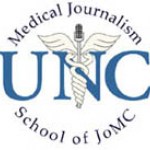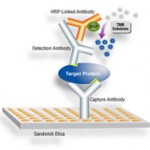Academia
The Ig Nobel Prizes are out, and Iceland wins big.
The title, explains it all (short version, with apologies to Krugman).
Long version, with translation, follows.
Yes, it is Ig Nobel Prize time, and the winner in Economics are the new Vikings of Finance:
"Economics: The directors, executives, and auditors of four Icelandic banks -- Kaupthing Bank, Landsbanki, Glitnir Bank, and Central Bank of Iceland -- for demonstrating that tiny banks can be rapidly transformed into huge banks, and vice versa -- and for demonstrating that similar things can be done to an entire national economy."
Sadly…
Via His Holiness, there is an aggressively stupid paragraph in a New York Times movie review today:
Did you hear the one about the guy who lived in the land of Uz, who was perfect and upright and feared God? His name was Job. In the new movie version, "A Serious Man," some details have been changed. He's called Larry Gopnik and he lives in Minnesota, where he teaches physics at a university. When we first meet Larry, in the spring of 1967, his tenure case is pending, his son's bar mitzvah is approaching, and, as in the original, a lot of bad stuff is about to happen, for no apparent reason.…
Yes, it's the IgNobel Awards for 2009!
Let's take a look at a couple of the more amusing ones:
PEACE PRIZE: Stephan Bolliger, Steffen Ross, Lars Oesterhelweg, Michael Thali and Beat Kneubuehl of the University of Bern, Switzerland, for determining -- by experiment -- whether it is better to be smashed over the head with a full bottle of beer or with an empty bottle.
REFERENCE: "Are Full or Empty Beer Bottles Sturdier and Does Their Fracture-Threshold Suffice to Break the Human Skull?" Stephan A. Bolliger, Steffen Ross, Lars Oesterhelweg, Michael J. Thali and Beat P. Kneubuehl, Journal of…
I should be writing a substantive blog post, but I'm dead tired after 14 hours spent listening to very stimulating science presented by talented grad students, post-docs and residents at a large medical center, after which they were in turn subjected to an invited lecture from me, a lecture I've been obsessing over for a month. I'm thousands of miles from home and I miss Mrs. R. and if I'm lucky I'll soon be at 30,000 feet over some western Canadian prairie and homeward bound.
See you soon, sweetheart. Keep a light on for me.
In a reputation economy, social media can provide a powerful set of tools for establishing and enhancing your reputation. An enhanced reputation can lead to enhanced opportunities, in the form of job offers or other professional opportunity.
Academia is a reputation economy, of course, but really any knowledge economy/creative class job is going to be easier to get if you have a good reputation. Which brings us back to social media.
It seems to me that in a competitive job market, students can really make their own applications stand out if they can refer potential employers to a really…
Here's a new tenure-track faculty position just posted at Science. A great position in a great department at a great school in a great place to live. IMHO, of course:
The University of Colorado Denver
Department of Cell and Developmental Biology in the School of Medicine
We invite applications for an Assistant Professor faculty position in the areas of cellular and molecular biology, broadly defined. Successful candidates will be expected to establish a vigorous, innovative and independent research program and participate in teaching. They will join a highly interactive, interdisciplinary…
It's time for the annual Mocking of the Thomson session.
Check out my previous iterations of this amusing pastime: 2002, 2006, 2007a, 2007b, 2008.
Yes, I've been at this for a while, but to no avail. My main point in all this is to make clear that I don't believe that the Nobel prizes are chosen on the basis of citation count. Sure, there's going to be a correlation between the two, but the causation is extremely weak. Thomson's constant hawking of their "Citation Laureates" is, in my opinion, self-serving and wrong-headed.
And yes, they do get them right occasionally, but that's because…
I've gotten a couple of emails asking what I think of the fact that the new president of Williams College is a theoretical physicist. So, here are my (very brief) thoughts on the matter:
1) As a general matter, I'm happy to see scientists in administrative positions. They tend to have a better appreciation of the demands of scientific research than humanists, and they tend to approach the running of things in a manner that's a little closer to my own preferences.
Having a physicist as president is highly unlikely to result in the diversion of vast sums of money to fund physics research,…
When writing the other day about how blogging has been of benefit to my career, I neglected to mention my recent invitation to the board of Science Communicators of North Carolina (SCONC).
Founded in June 2007 by Karl Leif Bates and Chris Brodie, and now headed by President Ernie Hood (Radio In Vivo), SCONC is a group of "science writers, journalists, public information officers, teachers and institutional communicators from academia, government labs, industry, museums and schools -- just about anyone interested in communicating science," who aim to improve public understanding of science…
Here's an amazing and fairly unique opportunity for a research-minded librarian who wants to significantly advance her or his research program. The appointment is for up to three years and the starting date is somewhat flexible.
Here's the terms of reference for the position:
Each appointment to the Chair will be a limited term appointment for up to three years.
A committee will be established to undertake a search for the Chair.
The selection will be based on the quality of the proposed research program along with evidence for the successful completion of the research proposal.
The…
I'm happy to report that Drugmonkey will be hosting the next installment of the Diversity in Science Carnival.
So I ask you to write and submit your posts in honor of scientists whose ancestors came from Spain, Mexico, the Caribbean and Central or South America. Submissions can be submitted through the submission site, emailed to me (drugmnky AT the googly one) or left as a comment after this post. The last day to submit is Oct 9 so I can get these out in the last week of the celebration. Happy Writing!
The carnival was launched by DN Lee of Urban Science Adventures for Black History…
This morning, I once again get to join in with a group of noted journalists, authors, educators, and all-around people-who-do-things-I-can't for the annual advisory board meeting of the M.S. in Medical and Science Journalism Program at the University of North Carolina at Chapel Hill's School of Journalism and Mass Communication.
Program founder and current director, Tom Linden, MD, is a Yale- and UCSF-trained physician-journalist with extensive broadcast experience across a series of California television stations. Dr Linden also recognized very early the potential value and pitfalls of…
Question for the lab geeks out there regarding general methods for antibody detection of specific analytes in cells, serum, and urine.
Do you have a favorite book, chapter, or any other reading material that you would use to guide students through designing and validating their own ELISA for a serum or urine protein? If you have any lecture slides you use and could share, I'd be happy to credit you. Some famous guy(s) gave me his H1N1 slides last year and helped me look like a genius.
I know that it takes a mighty, mighty fine antibody to do this relative to one for an immunoblot or even…
H1N1 swine 'flu is coming home, and it is a big hit on campus.
With universities starting, and the weather cooling, the prospect for an early and nasty 'flu season was evident, and, amazingly, proactive measures were taken.
The first signs were the free, stand-alone, water free, hand sanitizer dispensers, appearing in high traffic and food areas.
Then came the Fast, Foamy and Furious!
- signs that is.
In the bathrooms.
Apparently the best way to get people to lather up and scrub is to convince them to sing "Happy Birthday". Twice. Quietly.
Annoyingly enough, this clearly works, since weeks…
I usually try to stay out of religious wars, but there's one that is affecting my teaching this term, and it struck me as a good topic for a blog poll:
Which do you prefer for low-tech presentations?(surveys)
So, what's your favorite low-tech presentation technology?
Imagine you are looking ahead to a furlough day and taking seriously the piece of the agreement that specifies that you won't actually do any work on that furlough day. To prevent yourself from backsliding by doing work to pass the time, do you:
A. Schedule a spa-day at a local salon (thus also helping offset, if only just a little, the hit local businesses take during furlough days).
B. Let chores at home pile up, ensuring that your time will be gobbled up by doing them (or by hiding from those depending on you to do them).
C. Come down with some gnarly cold that knocks you on your butt…
As state university systems are making budget cuts and furloughing professors while have to expand course sections to meet burgeoning enrollment, one solution may be to tap the expertise of retired professors in the area.
The Research Triangle area of North Carolina, home to over a dozen colleges and universities, is also home to at least 600 retired professors.
This morning, Eric Ferreri of the Raleigh News & Observer, one of the best higher-ed reporters in the biz, reports on the offers from very accomplished profs who want to give back to their community and the relative lack of…
I'm halfway through Graham Farmelo's Dirac biography at the moment, and enjoying it quite a bit. Farmelo cites Dirac as one of the first physicists to evaluate theories on their mathematical beauty, rather than waiting for experiments. This is in stark contrast to his Cambridge colleague Rutherford, who was highly skeptical of abstract theory, and preferred to deal in concrete experiments.
This is one of the great chicken-and-egg problems in science: Should data come before theory, or should theory come before data? Thus, this seems like a good topic for a poll:
How do you like your science…
Over at Jim Henley's place, Thoreau further justifies his status as an essential academic-physics blogger with a really good post about the problem of introductory labs:
In freshman labs, generally you’re trying to measure something (at least as it’s done at many schools). The measurement is never as clean as the stuff being taught in lecture (or interactive discussion-based peer-involved blah blah whatever). There is nothing wrong with the fact that lab measurements are not as clean as the stuff in lecture! However, it does mean that you aren’t spending those 3 hours thinking about the…
Prompted by a discussion in another channel, a question for you all: What is your preferred type of calculator? That is, when you're doing some sort of problem involving math, and reach for a calculator, what do you reach for?
What Kind of Calculator Do You Use?(survey software)
I think I may have used this topic before, but not in a fancy radio-button poll.


